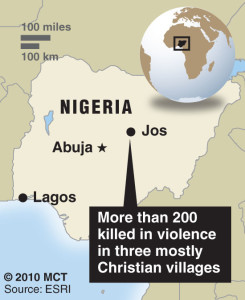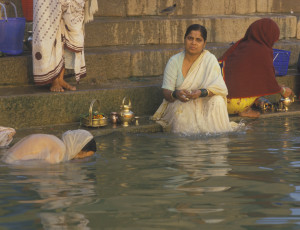Around the World
Recently, there was a story in the news of an Afghan teenager who fled his troubled homeland eight years ago to seek asylum in London. His extraordinary modern-day odyssey saw him travel illegally in a truck through Moscow, Eastern Europe and Paris en route to his final destination. The fairytale wasn’t a permanent one, however, and he was forced to return to Afghanistan eight years later, as a 23-year old. The price he paid for his eight years away? The last time he saw or heard from his family was the day he left, all those years ago and he has no way of knowing where they are, or if indeed they are alive. On our speck of our planet, there continue to be journeys that are epic and tragic in equal measure.
Welcome then, to the 360. With the barrage of information that we are subjected to, it’s easy to lose track of the bigger stories and trends that shape the world and our lives, however indirectly. In the words of a dictator that history frowns upon, one death is a tragedy while a million deaths is a statistic. A comment greeted with consternation at the time has never rung truer than it does today. The number of people left dead by avoidable circumstances is an omnipresent news headline and serves only to numb. It’s time to break the media-induced apathy.
The War on the Masses
Ours is the age of firsts. For the first time, wars are not entirely confined to battlefields and fought between primed groups of soldiers. Instead, the modus operandi of extremist groups is attacks on civilians irrespective of their political allegiance and ideology. For the first time, we are witnessing a war on the masses that is both unprecedented and cowardly.
In Lahore on March 12th, a suicide bombing saw 54 killed and 100 injured, the worst attack on Pakistani soil this year. The next day, 10 more were killed and 37 more injured by a bomb in Pakistan’s northwest region. While no one group has owned up responsibility for the attacks, they are believed to be the work of the Taliban, which had earlier promised a wave of suicide-bombings if Pakistan’s offensive against militants were to continue. In a country marred by political instability, the progress of the army against the Taliban that began late last year was seen as an indicator of better times. Instead, the Pakistani government finds itself in a difficult position, with the security of its people under severe threat and a military offensive that is too far in to give up.
Pakistan has also been under intense pressure from the United States to take a more active stand against the Taliban. In the past, the link between Pakistan’s Inter-Services Intelligence (ISI) and the Taliban has been notorious, and the country is in a bid to repair its image and quell growing discontentment against its conciliatory policy towards the Taliban.
The country finds itself in a very difficult position. While some argue that civilian losses are inevitable in a conflict of this nature, it’s hard to argue for the justice in the death of over 80 innocents in two days.
 Communal tensions in Jos, Nigeria have left 100 dead. On the surface, the clashes between the Fulani group of Muslims and the Berom group of Christians are religious. The reality is far deeper, however, and the causes and are primarily socioeconomic. Nigeria’s oil-rich government is seen by many as the only way to power, and in order to maintain control, politicians fan ethnic hatred. The situation is not helped by the official government policy of classifying people as ‘settlers’ and ‘indigenes’. Thousands of civilians have been killed in such clashes since Nigeria returned to a civilian government in 1999, and there are fears that the country is on its way to becoming a failed state.
Communal tensions in Jos, Nigeria have left 100 dead. On the surface, the clashes between the Fulani group of Muslims and the Berom group of Christians are religious. The reality is far deeper, however, and the causes and are primarily socioeconomic. Nigeria’s oil-rich government is seen by many as the only way to power, and in order to maintain control, politicians fan ethnic hatred. The situation is not helped by the official government policy of classifying people as ‘settlers’ and ‘indigenes’. Thousands of civilians have been killed in such clashes since Nigeria returned to a civilian government in 1999, and there are fears that the country is on its way to becoming a failed state.
The scenes of horror described by the residents of Jos give ample evidence of a dysfunctional government. Reports of unburied bodies littering the village are jolting the international community. The new interim president of Nigeria, Goodluck Jonathan, will need all the luck he can get to put the affairs of Africa’s most populous nation right.
Meanwhile, in another populated giant..
In a landmark move, the Indian government has reserved a third of all seats in its parliament and state legislative assemblies for women. The move was met with stiff resistance by a spirited group of socialist members of parliament, but was eventually passed, polarizing analysts.
Despite a growing economy and and increasing level of general education in the country, only 54% of Indian women are literate. Combined with the prevalent social inequality, the antipathy towards girl-children in many parts of the country and a declining sex-ratio, this paints depressing picture for India’s nearly 600 million women. Proponents of the move herald it as the beginning of a new age of reform and hope that it will lead to an increased focus on women’s issues.

Opponents of the bill evoke memories of 1909, when the then British government introduced separate electorates for different religious communities, a measure that ultimately proved divisive and played a major role in the growth of the mutual suspicion that ensued between the Hindus and Muslims of India. Moves of this nature, they argue, undermine the very principles of democracy in the country.
Either way, this promises to be an interesting time for the women of the world’s largest democracy.
The journey continues. Watch this space.
